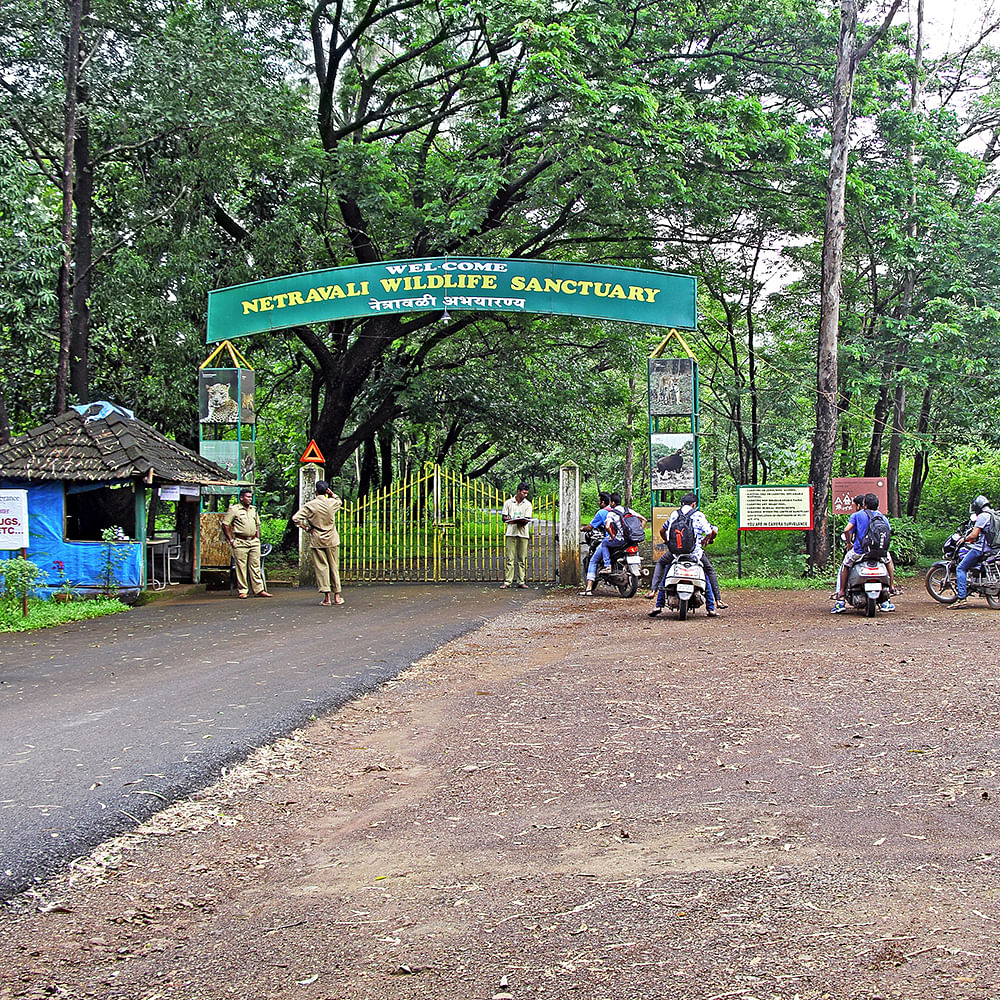Among the six essential wildlife sanctuaries that reside in Goa, one spectacle is the Netravali Wildlife Sanctuary. A tributary of the Zuari River, this living canvas spans over 211 square kilometres. Lush greenery forms the base, speckled with sunlight filtering through the leaves. Waterfalls add streaks of silver, while the diverse animal life pumps bursts of colour and movement. Keep reading to find out everything you need to know about this sanctuary!
Experience The Wilderness of Netravali Wildlife Sanctuary In South Goa
Overview
What Makes it Awesome
Located in the Western Ghats, the sanctuary is home to several endangered and endemic species, including the Indian Gaur, sloth bear, leopard, sambar deer, and Malabar pied hornbill. Its diverse vegetation includes moist deciduous forests, semi-evergreen forests, and bamboo brakes, making it a haven for nature lovers and wildlife enthusiasts. The sanctuary also houses several ancient temples and sacred groves, adding a cultural and spiritual dimension to its natural charm.
Activities that you can indulge in are - nature trails and treks, photography, bird watching, and picnicking. Anyone who is fond of photography would have a field day here, capturing all the beauty of the place. If you decide to go for a trek, look out for Savri and Mainapi waterfall and take a dip in the pool!
Beyond its natural wonders, Netravali is also known for its unique biodiversity conservation efforts. The sanctuary serves as a crucial habitat for endangered species and plays a vital role in maintaining ecological balance in the region. Additionally, it holds historical significance as it is believed to have been inhabited since ancient times, with archaeological remnants scattered throughout its expanse. Please ensure that you respect the sanctuary's rules and contribute to its preservation efforts.
Getting There
Netravali Wildlife Sanctuary is located approximately 80 kilometers south of Panaji, the capital of Goa. The most convenient way to reach the sanctuary is by hiring a taxi or driving along the scenic roads. You can also board a bus from Panaji which goes direct to Netravali.
Timing: 8:30 AM - 4:30 PM
Best Time to Visit
The sanctuary is open throughout the year, but the best time to visit is from October to March when the weather is pleasant and conducive for exploration. The monsoon season (June to September) transforms the landscape into a paradise of sorts with blooming greenery and gushing waterfalls, but accessibility may be affected due to heavy rainfall. One can also opt for various guided tours available or book a spot for a 3-day hike with Indiahikes.
Visiting Tips
Entry into the sanctuary may require permits, which can be obtained from the Forest Department office in the nearby town of Sanguem. We suggest you opt for guided tours to maximize your wildlife sightings and learn about the sanctuary's ecology and conservation efforts.
LBB-Tip: Since there are no cafes within the sanctuary, it's best to bring your own food. Alternatively, plan a trip to Palolem where you can enjoy a meal. It's just a 45-minute drive away from the sanctuary!

